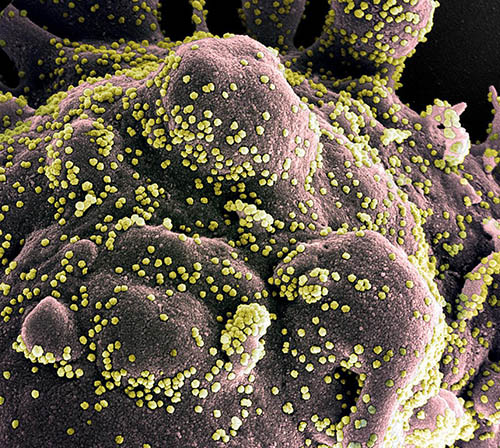Investigational COVID-19 vaccine well-tolerated and generates immune response in older adults
A Phase 1 trial of an investigational mRNA vaccine to prevent SARS-CoV-2 infection has shown that the vaccine is well-tolerated and generates a strong immune response in older adults. A report published today in the New England Journal of Medicine describes the findings from the study, which was supported by the National Institute of Allergy and Infectious Diseases (NIAID), part of the National Institutes of Health. SARS-CoV-2 is the virus that causes COVID-19 disease.
The experimental vaccine, mRNA-1273, was co-developed by researchers at NIAID and Moderna, Inc. of Cambridge, Massachusetts. The Phase 1 trial began on March 16, 2020, and was expanded to enroll older adults about one month later. Older adults are more vulnerable to complications of COVID-19 and are an important population for vaccination. Understanding how the vaccine affects older adults is a critical part of measuring its safety and efficacy.
The trial was conducted at Kaiser Permanente Washington Health Research Institute (KPWHRI) in Seattle, Emory University in Atlanta, and NIAID’s Vaccine Research Center (VRC) clinic at the NIH Clinical Center in Bethesda, Maryland. Julie Ledgerwood, D.O., deputy director and chief medical officer at the VRC, oversaw the study at the NIH site. The Coalition for Epidemic Preparedness Innovations (CEPI) supported the manufacturing of the vaccine candidate for this trial. This trial is supported by the Infectious Diseases Clinical Research Consortium (IDCRC) through NIAID.

Colorized scanning electron micrograph of an apoptotic cell (gray) heavily infected with SARS-COV-2 virus particles (yellow), isolated from a patient sample.
This page was last updated on Friday, January 21, 2022